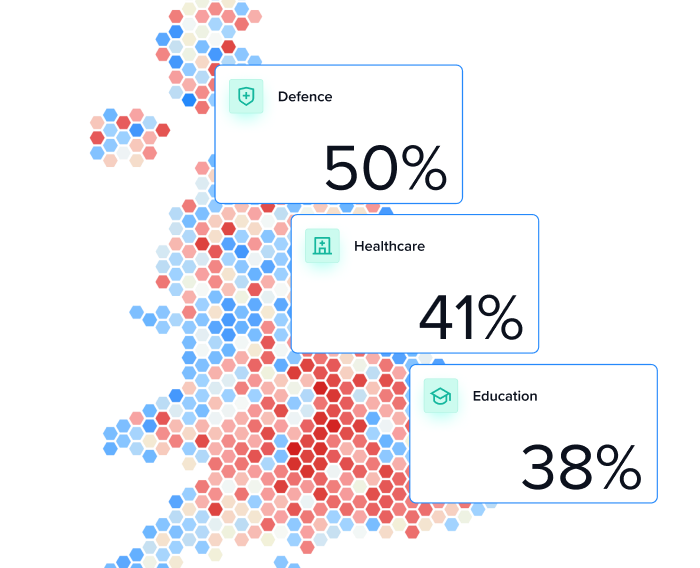Blog/Polling
Poll results: Labour drops two points while Reform hits new high
The headlines
- Labour leads the Conservatives by 18 points, down one on our most recent poll.
- Labour has dropped two points to 42%, while the Conservatives are down one on 24%.
- Reform UK has climbed one point, and is now sitting at a record high of 15%.
Points of interest
- Keir Starmer continues to lead on the question of best Prime Minister, beating Sunak 49–35% and Farage 53–31%.
- Both major party leaders have seen dips in favourability since our last poll, with Sunak’s net rating down four points to -32, and Starmer narrowly into net negative territory, down eight points to -1.
- In the aftermath of the D-Day Commemorations and the controversy over the Prime Minister’s early exit, voters are more likely to say that Sunak is not patriotic (46%) than is (41%). Nigel Farage leads on the patriotism question, with 58% viewing the Reform leader as patriotic, versus 27% who say he is not.
- While voters on the whole (44% to 36%) would be happy with a scenario in which Labour won 75% of the seats from 40% of the national vote, by 43% to 38% they think the result would be unfair – a potential boost to campaigners for proportional representation.
Methodological note
Poll was conducted 7–11 June 2024, with a sample size of 3,124 respondents. Responses were weighted by age, gender, region, education and ethnicity. A ‘squeeze’ question was asked to respondents who initially said they did not know who they would vote for. Squeeze respondents who said they would not vote were then removed from the sample, with others allocated to their chosen party.
In this iteration of the tracker, we modified our voting intention question slightly, asking voters how they would vote specifically in their own constituency:
Previous question: In the upcoming UK general election on 4 July, which party will you vote for?
New question: Thinking specifically about your own constituency, which party do you intend to vote for in the upcoming general election on 4 July?
Turnout was predicted using a turnout model, which uses British Election Study data to estimate a respondent’s likelihood of voting based on their demographics and how they responded to questions on attitudes towards voting. A manual override was also applied, with those who say they are 0/10 likely to vote automatically assigned a 0% likelihood of voting.
While we finalise research pertaining to false recall of 2019 general election vote, we have chosen not to currently weight by recalled past vote. Given how many voters have switched party since 2019, we expect there to be a higher likelihood of false recall, which could skew our results. Furthermore, given the age divides in each party’s 2019 electorate, there is a significant disparity in expected mortality levels for previous voters of the two major parties. Weighting recalled vote based on the exact vote share of the last general election would not account for this fact. Any future past vote weight for this tracker will attempt to take into account false recall and the number of past voters of each party still in the electorate.
Data tables
Data tables are available here.
Image of Keir Starmer by UK Parliament / Jessica Taylor


